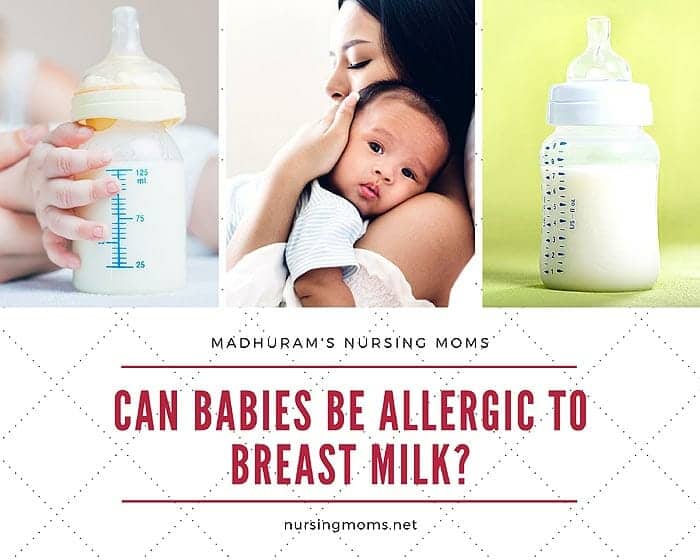
Can Babies Be Allergic To Breast Milk? If your baby seems fussy or if they present other side effects after feeding, such as vomiting or constipation, it might be that they react in a less than pleasant way to your breastmilk. But they are not allergic to the breastmilk itself, but rather to the food you eat that adds to your breastmilk.
Naturally, your body will produce breastmilk[1] for your baby, so they will not be allergic to the milk protein or other natural components of your breastmilk, such as the fat in it or the vitamins and minerals.
However, your baby could be allergic to specific components in your breastmilk that come from the food you eat. This is one of the reasons why your diet as a nursing mother is vital not just for you but also for your baby.
Jump to:
Signs that your baby might be allergic to something in your breastmilk
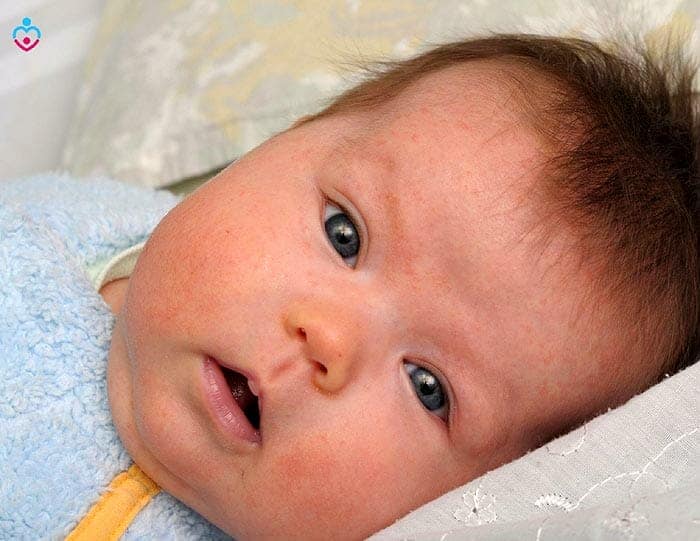
Since your baby will not be allergic to the breastmilk protein, if they show signs of allergy, it means that they react to something you ate that made its way into your breastmilk.
- Babies react to such allergies at the level of their intestines. As a result, they usually experience symptoms such as vomiting, abdominal pain, diarrhea, hives, eczema, wheezing or coughing, watery eyes, dry eyes, runny nose, and bloody stool and swelling. However, swelling in the face usually happens due to a severe allergy rather than a mild one.
- From all these symptoms, the most common and also the most severe symptom seems to be eczema. Bloody stool is also frequently present as a serious clue of breastfeeding allergy in your baby.
- Usually, these symptoms appear isolated, without any other sign of sickness, so you will have to pay attention to them and identify them correctly.
Suggested Reading:
![]()
When to talk to the doctor?
The symptoms above are not always a sign of an allergy that your baby might deal with, but you can't know for sure until you talk to your doctor.
- Your baby will have to present two or more of the symptoms above to give you real reasons for suspecting an allergy. If your baby is just fussy now and then, it doesn't have to be a symptom of an allergy, as infants can have moments like that due to other reasons such as a poor meal or a poor nap quality.
- If you introduced a new food to your diet and noticed your baby showing such symptoms after the first meals with the breastmilk that might contain that food, it is essential to check with your doctor.
Suggested Reading:
![]()
Diagnosing and treating breastfeeding allergies
Your doctor will analyze both your diet and the symptoms that your baby shows and decide if something you eat might be causing allergic reactions in your little one.
- If all the signs point to a possible allergy, your doctor might suggest you change your diet for seven days.
- If the problem for your baby's symptom was the food you ate, these symptoms should disappear in three to seven days once you change your diet.
- However, to make sure it was the allergy causing your baby such discomfort, your doctor could suggest you start eating those foods again for one to two days to see if the symptoms reappear.
- If the symptoms do reappear, it will be apparent that your baby has an allergic reaction to something in your diet that gets into the breastmilk.
Suggested Reading:
![]()
What are the main foods responsible for breastmilk allergies in infants?
In general, a nursing mother is allowed to eat everything in moderation until their baby negatively reacts to breastmilk and its quality.
- While during breastfeeding, the diet should be based on a balanced choice of foods that include fruits, veggies, lean meats, and other similar products; you will be surprised to discover that your baby might react differently than you to these dishes.
- Not everything you eat can give your infant an allergic reaction. Fruits and veggies, for instance, the exception being citrus, and even seeds will not be as potent as they had to be to give your baby such symptoms by simply getting in your breastmilk.
- The most common foods that generate breastmilk allergies are cow's milk, eggs, citrus, nuts, soy-based products, and fish. Besides these foods, there might be others as well, but in general, these are the main suspects when it comes to your baby's allergic reactions.
- Food allergies in babies affect about seven percent of children in the United States alone. But these are just the documented cases, so in actuality, they might be a lot more.
- So, if you suspect that your baby has an allergy, it is important to investigate it further because the symptoms could vary from one case to another. Only a doctor could guide you in handling your baby's allergy the best way and with no unnecessary risks.
Suggested Reading:
![]()
Is breastfeeding protecting your baby against allergies?
This point might surprise you, considering that your breastmilk's contents might cause an allergic reaction.
- There is no straight answer as there are still studies going on regarding this topic. However, it is thought that a minimum time of four months of exclusive nursing can significantly reduce the risk of your baby developing allergies in their childhood and even later in life.
- Even if your baby shows signs of an intolerance to a particular food or even an allergy, it is essential to adjust your diet to reduce their symptoms but not stop nursing them.
- Nursing your baby is essential for their health and overall development, so you don't want to skip these benefits for a minor or mild intolerance or allergic reaction.
- Most of these allergies[2] resolve by themselves in the first year of your baby's life.
Suggested Reading:
![]()
All babies are different, and every mother is different, so it is challenging to uniform all cases. For example, what some babies might be allergic to, others will love to eat. You will have to observe how your baby eats and how they feel after a nursing session to ensure they are getting the best nutrition.
If you have any doubts about your baby's diet or need adjustments, it is important to talk to your doctor.
If your baby does have an allergic reaction, it is essential to not panic but instead follow the steps your doctor recommends you to keep their symptoms under control.
![]()




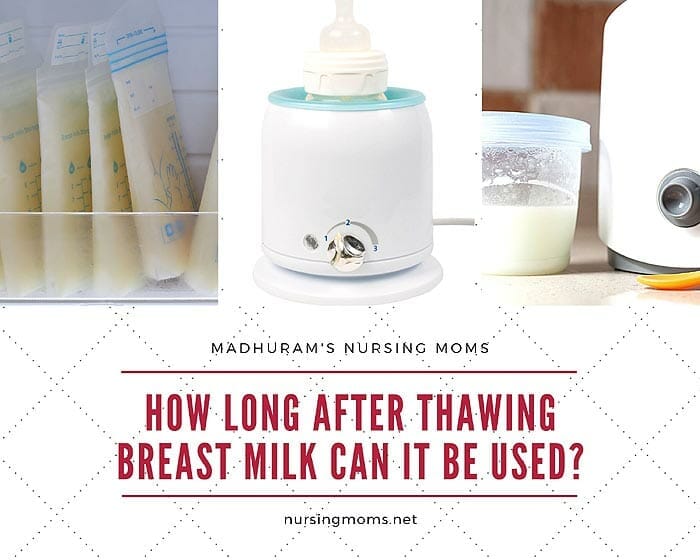
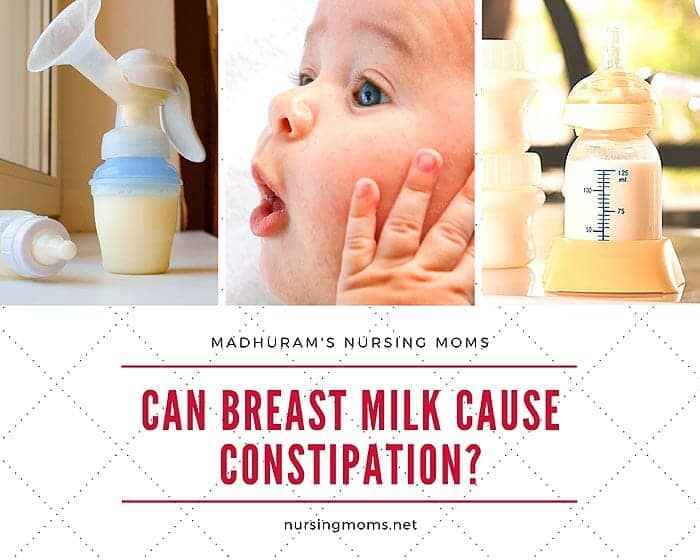

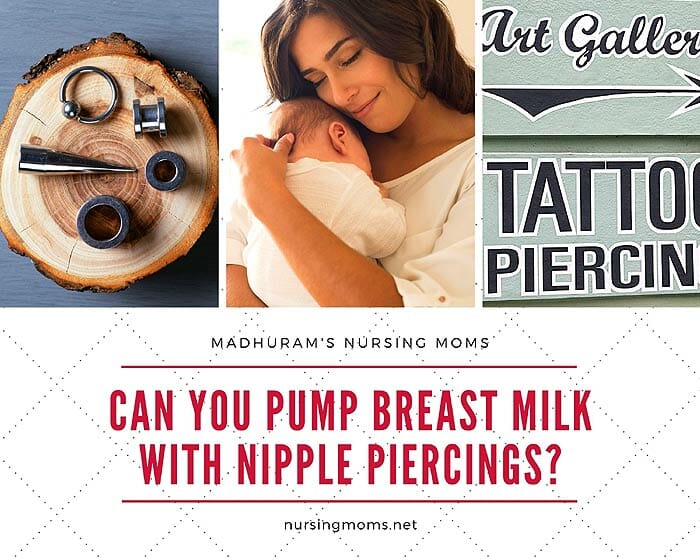
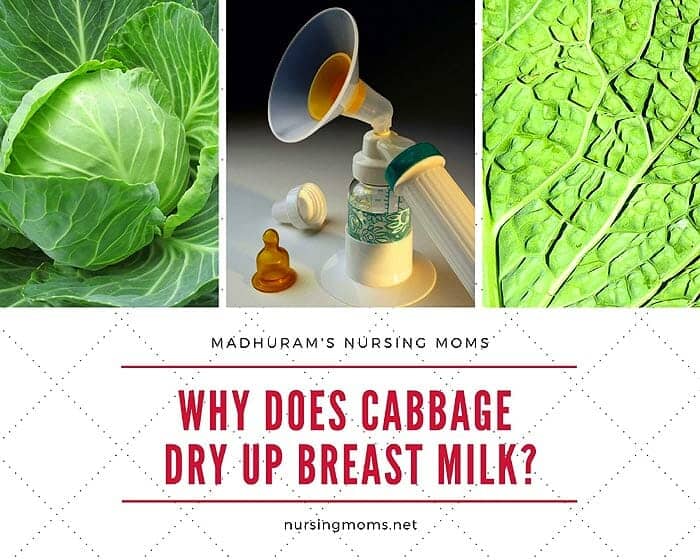

Leave a Reply